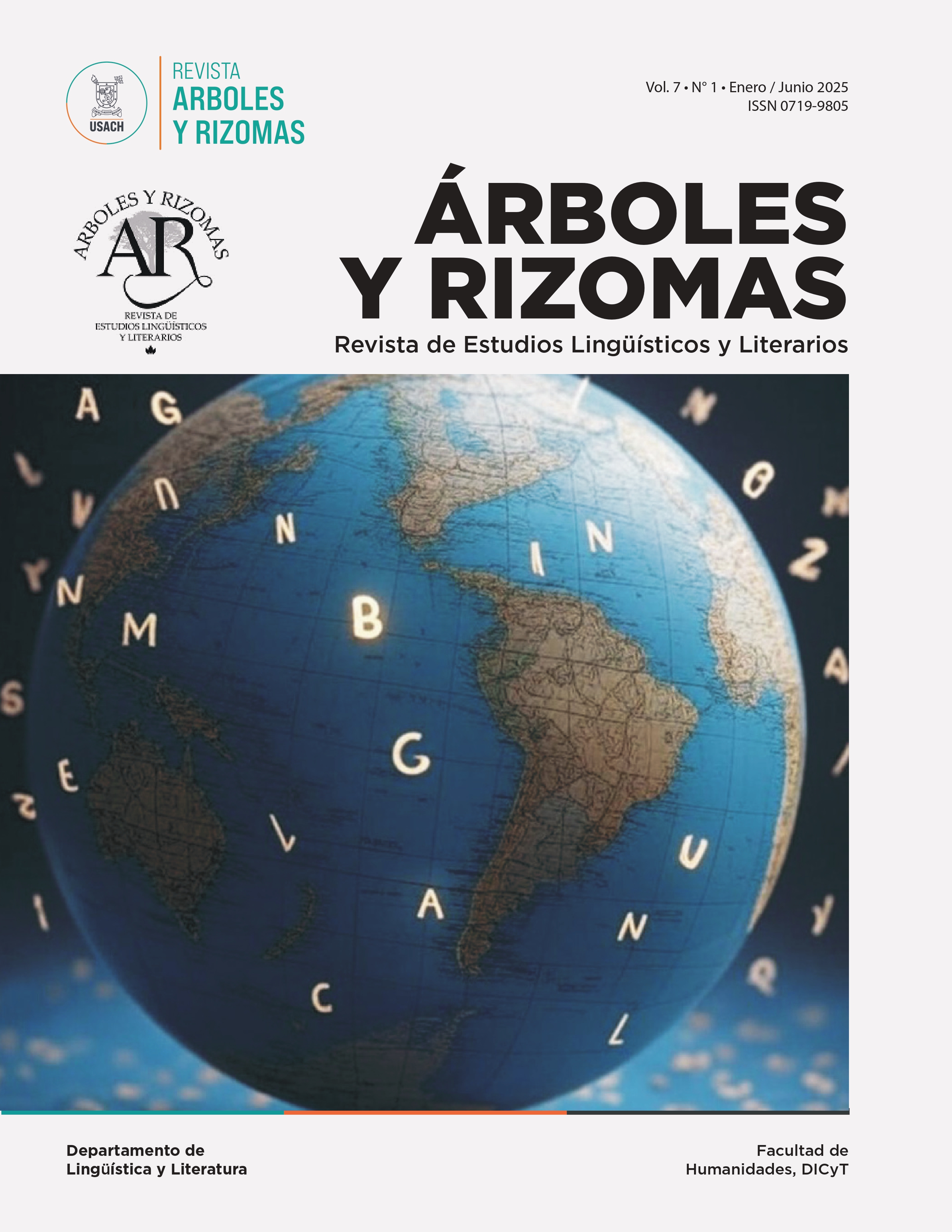Rethinking English language teaching: didactic adaptations to incorporate ELF in the LEA-NI course at UESC
DOI:
https://doi.org/10.35588/ayr.v7i1.7206Keywords:
English as a lingua franca, English language teaching, international negotiations, teaching materialsAbstract
This paper investigates the importance of approaching English as a Lingua Franca (ELF) in the teaching of English in the Foreign Languages Applied to International Negotiations (LEA-NI) course at the Universidade Estadual de Santa Cruz (UESC), located in Ilhéus, BA, Brazil. The study aims at recognizing the relevance of teaching materials that integrate the perspective of ELF and understanding how this approach can meet the needs of the LEA-NI course. To this end, adaptations were made to activities from the New Edition Market Leader Elementary and Pre-Intermediate books with a focus on promoting linguistic and cultural diversity. The research adopts a qualitative, exploratory and bibliographical approach, based on authors such as Jenkins (2015), Seidlhofer (2011) and Siqueira (2020). The results show that introducing the ELF perspective into English teaching activities strengthens students’ autonomy, expands their intercultural competence and provides greater confidence in communication in multilingual environments, contributing to educate professionals capable of working in international negotiations. The study reinforces the relevance of a critical revision of teaching materials and the adoption of pedagogical strategies that approach the plurality of English in global contexts.
Downloads
References
Cotton, D., Falvey, D., & Kent, S. (2007a). Market leader pre-intermediate business English coursebook. Pearson Longman.
Cotton, D., Falvey, D., Kent, S., & Rogers, J. (2007b). Market leader elementary business English coursebook. Pearson Longman.
Figueiredo, E., & Siqueira, S. (2021). How can we teach English as a Lingua Franca locally? In R. Silveira, & A. Gonçalves (Eds.). Applied Linguistics Questions and Answers: Essential Readings for Teacher Educators (pp. 26-52). UFSC.
Gil, A. C. (2017). Como elaborar projetos de pesquisa. Atlas.
Jenkins, J. (2015). Repositioning English and multilingualism in English as a Lingua Franca. Englishes in Practice, [S.l.] 2(3), 49-8. http://dx.doi.org/10.1515/eip-2015-0003.
Kachru, B. (1985). Standards, codification and sociolinguistic realism: The English language in the outer circle. In R. Quirk, & H. G. Widdowson (Eds.), English in the world: Teaching and learning the language and literatures (pp. 11–30). Cambridge University Press.
Marson, I. C. V. (2019). Multiliteracies, translingual practice and English as a lingua franca: Decolonizing teacher education in a public university in Brazil [Doutorado em Letras, Universidade Federal do Paraná].
Mendes, E. (2004). Abordagem comunicativa intercultural: uma proposta para ensinar e aprender língua no diálogo de culturas [Doutorado em Linguística Aplicada, Universidade Estadual de Campinas, UNICAMP]. Terminal RI - Sophia Biblioteca Web
Mendes, E. (2012). Aprender a ser e a viver com o outro: materiais didáticos interculturais para o ensino de português LE/L2. In D. Scheyerl, & S. Siqueira. (Eds.), Materiais didáticos para o ensino de línguas na contemporaneidade: contestações e proposições (pp. 355-378). EDUFBA.
Mendes, A. P. M. (2020). A formação reflexiva do professor de inglês: reflexos na prática pedagógica [Especialização em Práticas Reflexivas e Ensino-Aprendizagem de Inglês na Escola, Pontifícia Universidade Católica de São Paulo].
Nascimento, G. (2023). A linguagem como zona do não-ser na vida de pessoas negras no sul global. Gragoatá, 28(60). https://doi.org/10.22409/gragoata.v28i60.53299
Oliveira, D. V. B. (2017). Imperialismo linguístico e o professor brasileiro de inglês: desatando nós, apontando caminhos [Mestrado em Língua e Cultura, Instituto de Letras, Universidade Federal da Bahia]. https://repositorio.ufba.br/handle/ri/26656
Rajadurai, J. (2007) Intelligibility studies: a consideration of empirical and ideological issues. World Englishes, 26, 87-98.https://sci-hub.se/10.1111/j.1467-971X.2007.00490.x
Rajagopalan, K. (1997). Linguistics and the myth of nativity: Comments on the controversy over ‘new/non-native Englishes’. Journal of Pragmatics, 27(2), 225-231.
Rajagopalan, K. (2010). The English language, globalization and Latin America: possible lessons from the ‘Outer Circle’. In T. Omoniyi, & M. Saxena (Eds.) Contending with globalization in world Englishes (pp. 175-195). Multilingual Matters.
Richter, M. G. (2005) O material didático no ensino de línguas. Linguagem e Cidadania,7(2),1-19.https://doi.org/10.5902/1516849228543
Santos, J. N. dos, e Siqueira, D. S. P. (2019). Desafios contemporâneos na formação de professores de inglês: algumas contribuições dos estudos de Inglês como Língua Franca. Revista Letras Raras, 8(3), 65-86.http://dx.doi.org/10.35572/rlr.v8i3.1458
Sato, S. K., Saparas, M., e Buin, E. (2023). O ensino de inglês como língua franca e o papel do livro didático. Revista Educação e Linguagens, 12(24), 117–141. https://doi.org/10.33871/22386084.2023.12.24.117-141
Schmitz, J. R. (2014). Looking under Kachru’s (1982, 1985) Three Circles Model of World Englishes: The hidden reality and current challenges. Revista Brasileira de Linguística Aplicada, 14(2), 373-411.https://www.scielo.br/j/rbla/a/JpXRQKLyqJc6MWYgxQjRYZJ/ .
Seidlhofer, B. (2011). Understanding English as a lingua franca. Oxford: Oxford University Press.
Severino, A. J. (2007). Metodologia do Trabalho Científico. Cortez.
Siqueira, S., e Barros, K. S. (2013). Por um ensino intercultural de inglês como língua franca (For an intercultural teaching of English as a lingua franca). Estudos Linguísticos e Literários, 2 (48), 5-39. https://periodicos.ufba.br/index.php/estudos/article/view/14536
Siqueira, D. S. P. (2018). Inglês como Língua Franca não é zona neutra, é zona transcultural de poder: por uma descolonização de concepções, práticas e atitudes. Revista Línguas & Letras, 19(44), 93-113.https://e-revista.unioeste.br/index.php/linguaseletras/article/view/20257.
Siqueira, S. (2020). ELT materials for basic education in Brazil: Is there room for an ELF-aware practice? Estudos Linguísticos e Literários, 65, 118-146. https://periodicos.ufba.br/index.php/estudos/article/view/36472/20976
UESC (2024), LEA.http://www.uesc.br/cursos/graduacao/bacharelado/lea/index.php.
Downloads
Submitted
2025-03-17Published
Issue
Section
License
Copyright (c) 2025 Elaine Cristina Medeiros Frossard, Raquel Barbosa Galvão

This work is licensed under a Creative Commons Attribution 4.0 International License.






